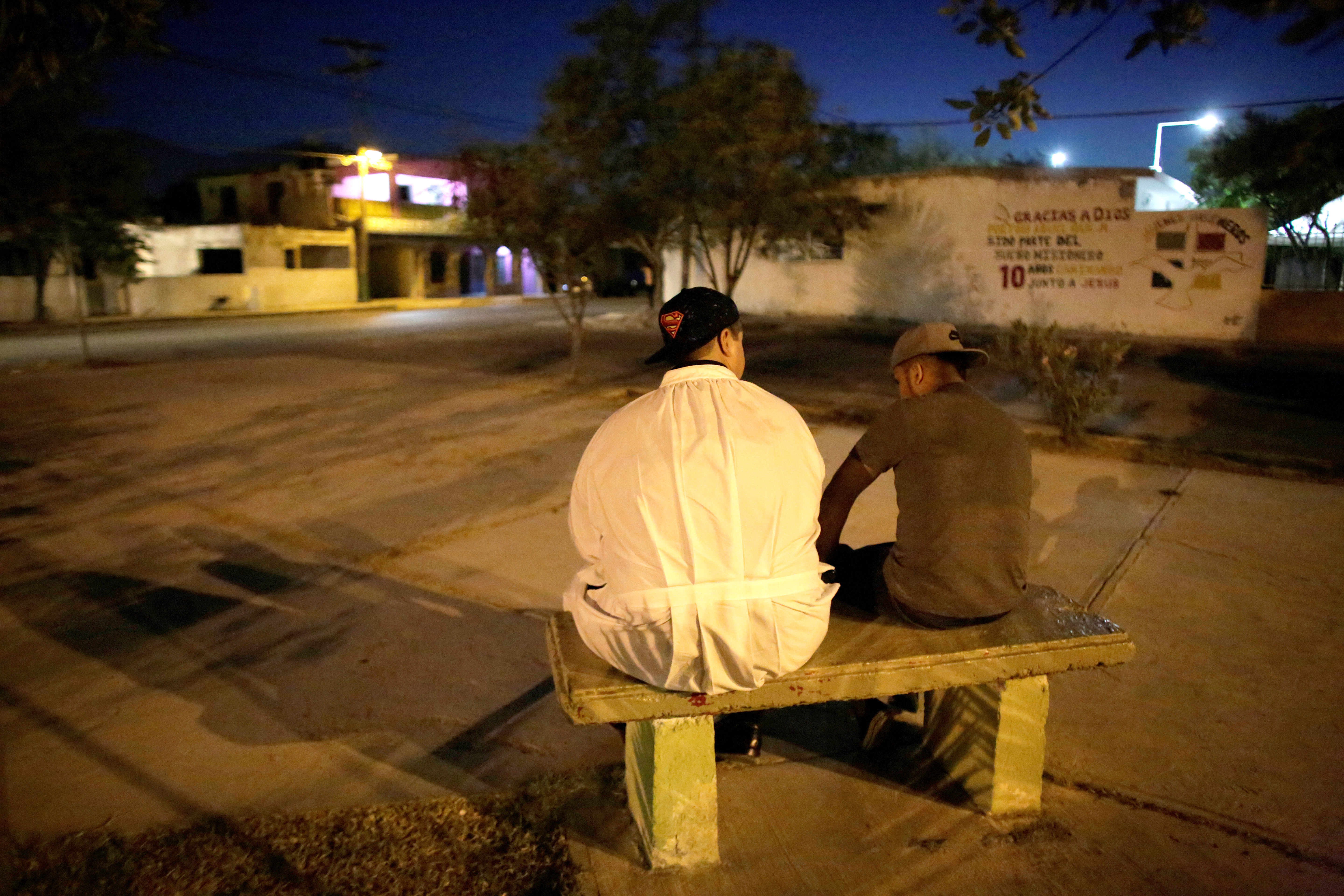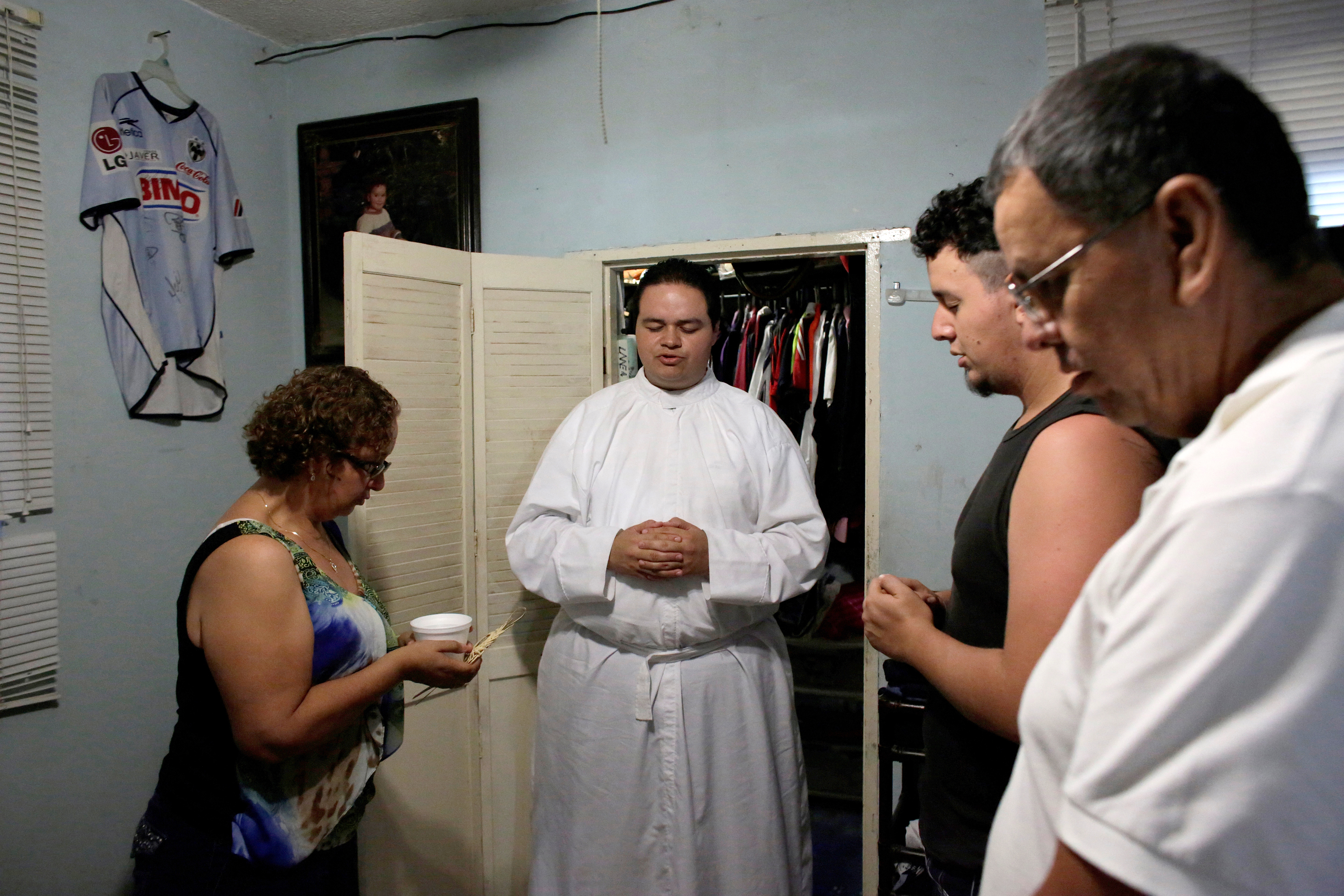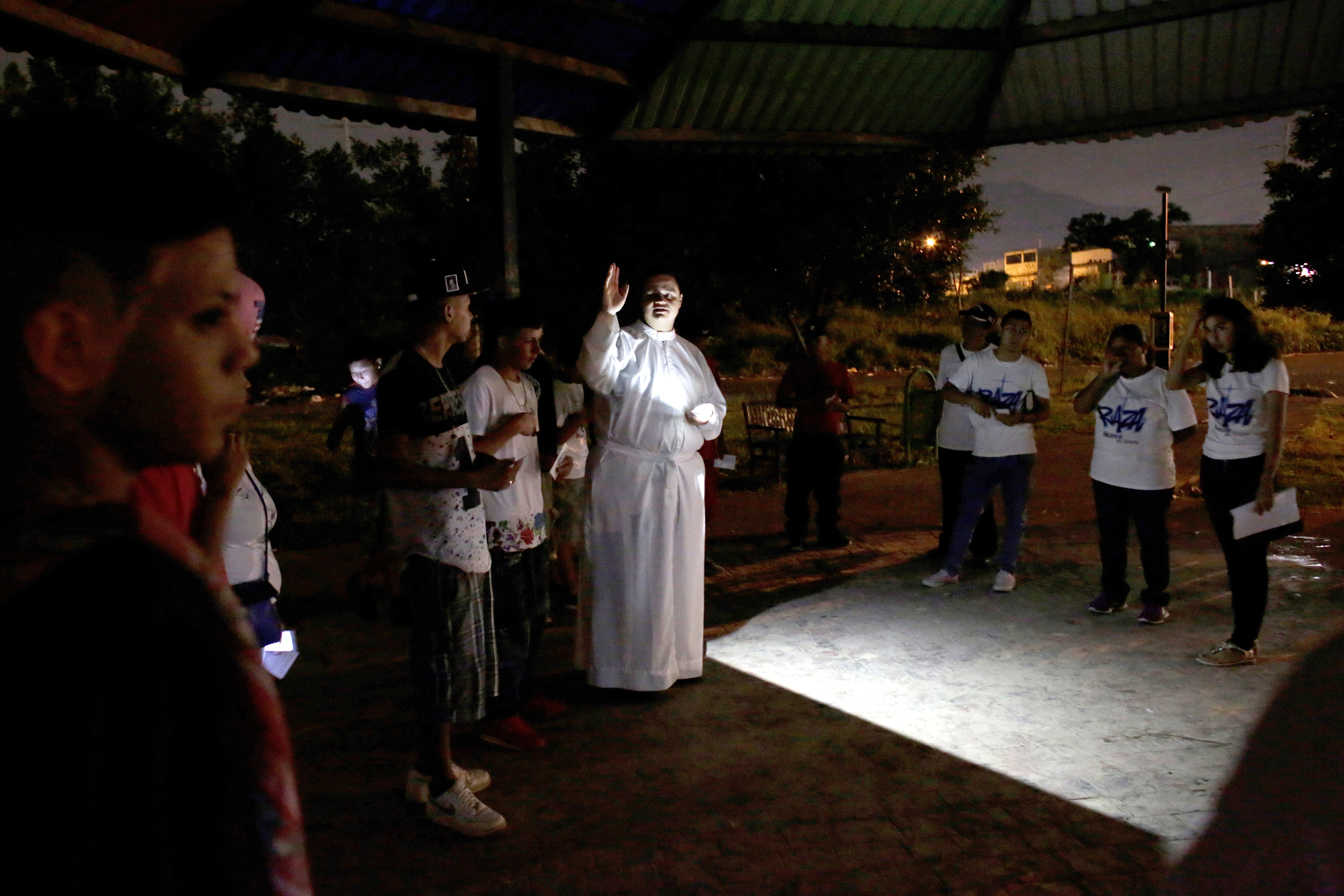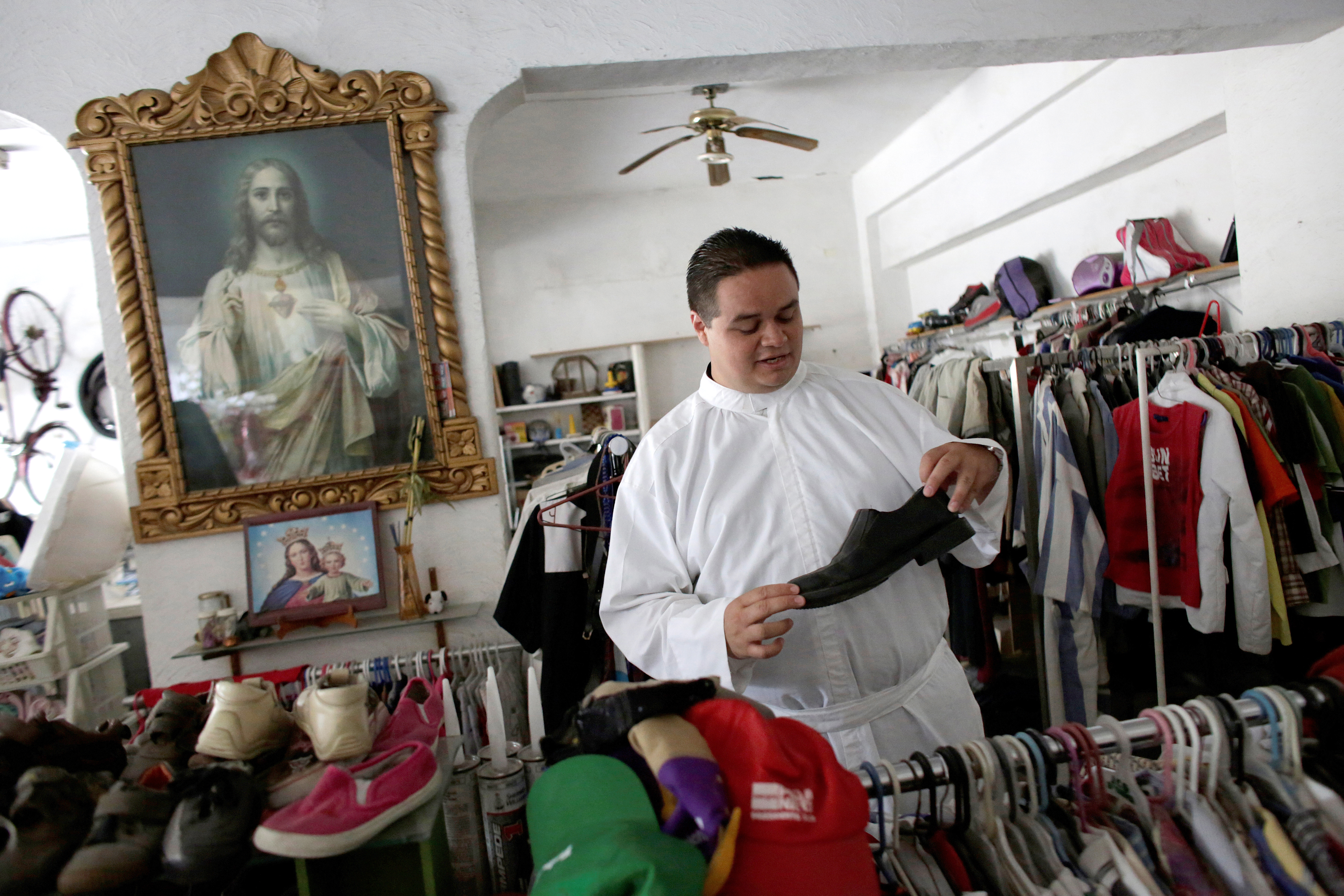

By David Agren
Catholic News Service
MONTERREY, Mexico (CNS) — With his priestly robes and clean-cut appearance, Fr. Jose Luis Guerra hardly looks the part of a gangster. Yet the recently ordained priest hits the streets of a scruffy suburb of this northern Mexican city with his own posse, the Gang of Christ, which takes catechism classes and Christ’s witness out of the parish and into a peripheral place occupied by young men on the margins of society.
“It’s risky work, I can’t say that it isn’t,” Fr. Guerra said. “However, there is an impressive openness on the part of these young men when a priest goes out and listens to them at a street corner.”
The outreach is an example of Pope Francis’ call for pastors to smell like the sheep in their flocks and for Catholics to take their faith to peripheral places. It’s also a novel approach to addressing the gang issue in a city known for industrialization and entrepreneurship, but harmed earlier in the decade by out-of-control organized crime and drug cartel violence.
Fr. Guerra — ordained Aug. 15 — says hundreds of gangs have formed in Monterrey, attracting mostly young men from broken homes or marginalized areas. Many of the areas are populated by low-wage workers, living in cramped houses, in what is often thought of as Mexico’s wealthiest metropolitan areas and a city full of factories making products for export.

The priest takes a novel and nonconfrontational approach to the gang issue, starting with identifying his own outreach in terms the gangs will understand and trying to reduce harm rather than ripping young men away from organizations involved often in improper activities.
“The Gang of Christ,” he said, “Does not dismantle gangs” or threaten the groups, which he describes as “family” and a support structure for its member.
This makes it impossible to do away with gangs, but he can bring about change.
“What do you want: an aggressive, violent gangster or gang member that has been evangelized and is evangelizing others?” said Fr. Guerra, vicar of St. John of the Cross Parish in the municipality of Escobedo and an adviser to the archdiocesan outreach “Raza Nueva en Cristo,” loosely translated as New Posse in Christ.
“They continue being gang members, but they’re not gang members getting high, not involved in violence, not fighting with others.”
Raza Nueva en Cristo, he says, has trained ex-gang members and approaches the groups on their own terms and on their own turf — meaning in the street and after dark.
“They know the language of the gangs, but are now evangelizers and catechism instructors to the gangs,” Fr. Guerra explained.

Fr. Guerra, 34, never set out to work in the streets, much less with gang members. He was born into a Catholic, middle-class family, went to law school at the local university and worked on legal cases for business and government alike.
His experience in the seminary set him on another path, however.
Seminarians, he said, live and study in a local municipality with gang and crime problems, but involve themselves in local outreach, part of the archdiocesan plan for evangelization.
As a deacon, he worked in social ministries, including a time with the homeless, whom he studied as part of putting together a diagnosis for the Archdiocese of Monterrey. He found many of the homeless in Monterrey were Central American migrants, who had traveled the length of Mexico, but were scared to traverse the final 150 miles to the U.S. border due to fear of the cartels carrying out kidnappings and other crimes against them.
Fr. Guerra started working with gangs in January, when he walked out of his parish and headed out into the street. Little by little, he found gang members wanting to talk.

“It’s getting into the hearts of the gang members. … Not judging, not holding prejudices (and) having attitude of being available,” he said.
“Our work is to teach them how to create opportunities” to succeed in life, Fr. Guerra said, explaining Raza Nueva en Cristo tries to help members with find work opportunities or places to study. “Our pastoral work is spiritual and teaches the gangs to study and work.”
The group also organizes soccer tournaments and other opportunities to get along, but mostly the approach is spiritual. Fr. Guerra often speaks of knowing the hearts of those he serves.
“You have to know the heart of the disciples to win more disciples for Jesus Christ, this is a maxim for my outreach,” he said. “Go out and reach the hearts of these young people. To do this, you have to go and hear them in the street and on the corner at night, which is where they are.”





